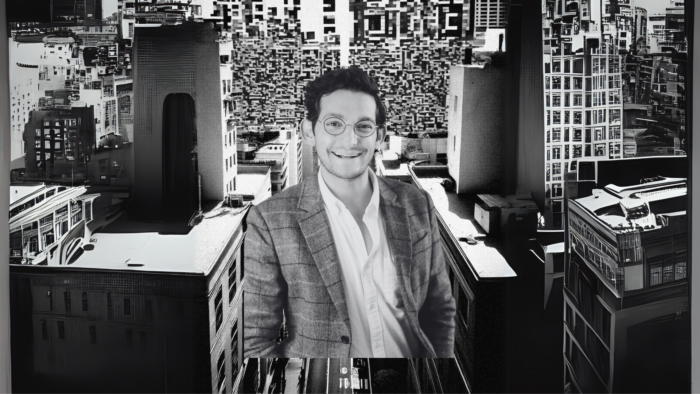
In turn, we use cookies to measure and obtain statistical data about the navigation of the users. You can configure and accept the use of the cookies, and modify your consent options, at any time.
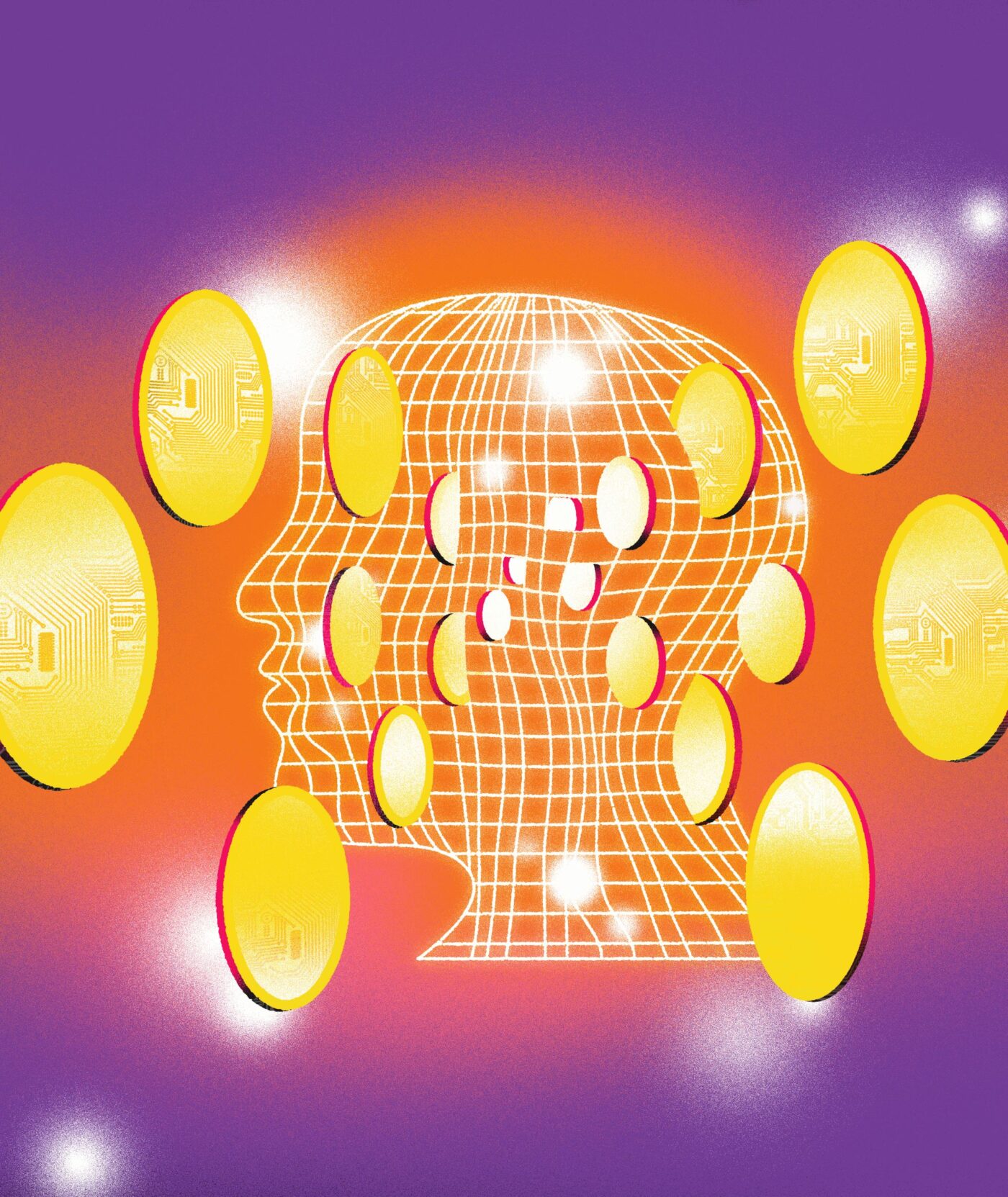
The Cost of Money
Political ecologist Alf Hornborg has proposed a new type of money – strictly localised and distributed via a universal basic income scheme. We visited the unorthodox thinker on his remote farm in eastern Sweden to learn more about his vision for the future of money.
Illustration: Daniel Zender
They left the city to become sheep farmers.
“We had this idea…” Alf Hornborg stops himself for a second, smiling while reminiscing about his younger self, “that we wanted to leave civilization behind. Mind you, we were in our early twenties.”
In 1978 Alf Hornborg and his wife bought eleven sheep and moved to a farm called Yxnevik in southeastern Sweden. When they left the farm again to live elsewhere fourteen years later, they had a flock of almost 190 ewes. In the meantime, Hornborg had received a PhD in cultural anthropology from Uppsala University.
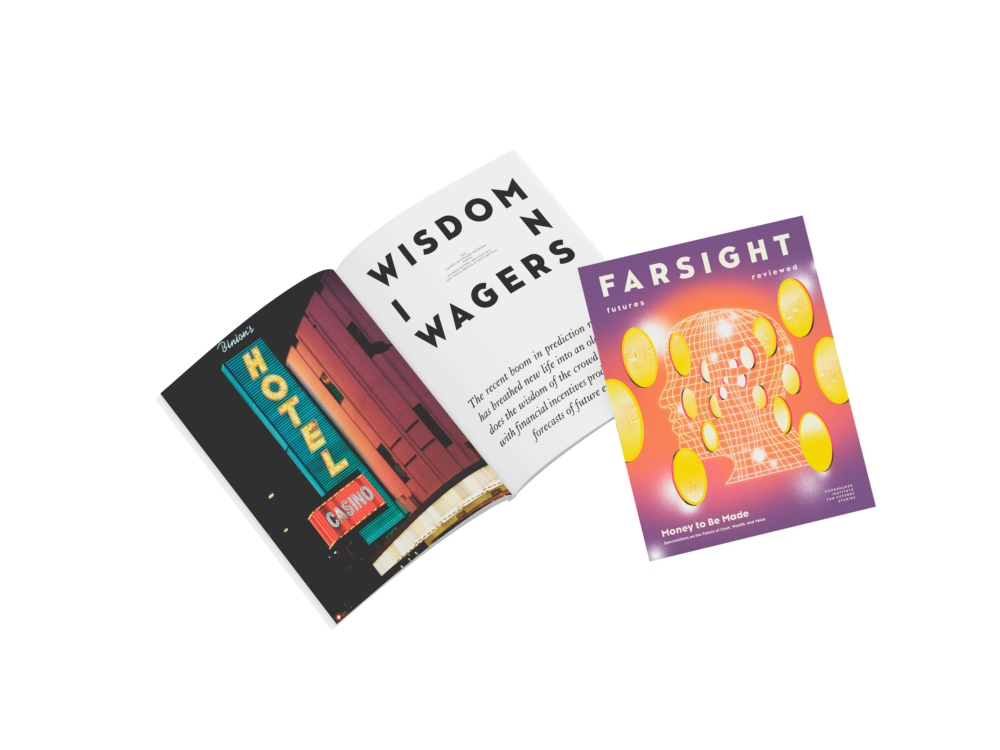
Broaden your horizons with a Futures Membership. Stay updated on key trends and developments through receiving quarterly issues of FARSIGHT, live Futures Seminars with futurists, training, and discounts on our courses.
become a futures memberHornborg and his wife were not able to make a living solely from sheep farming, so they had held on to teaching and researching as well. Commuting back and forth between sheep and seminars, Hornborg had a chance to reflect on the differences between the two life-worlds he had access to. Shifting between the local farming community around Yxnevik and the abstract mode of thinking in academic circles was formative for the political ecologist’s outlook, which emphasises how sustainability must be anchored at both local and global levels.
“I want to see the whole context,” he tells me as we approach Yxnevik in his Volvo. “Whether it’s the farm or the world. I do not want to get too preoccupied with a close-up view of things. I want to understand how they interlace with one another. One of the reasons I wanted to move out here when I was twenty-three was to live in a world that I could grasp fully. It’s the same reason that global analyses have always appealed to me.”
The Professor Emeritus turned seventy just a few days prior to our meeting. Although he is retired, he is not done thinking about money, which he has spent the past thirty years scrutinising. That’s what we’re going to Yxnevik for: to talk about what money does to the world and how we might rethink it.
In November 2024, Hornborg published Liquidate: How Money is Dissolving the World. In the book, he tracks the social history of money and surveys its ecological repercussions. In doing so, he makes the case that money is the root of many of our current crises.
Money is a human fantasy, but a powerful one that warps everything it touches. By enabling the measurement of everything against the same metric, money facilitates easy transactions, but the same property makes it capable of great destruction, says Hornborg. He sees a direct link between how money functions and our inability to solve global challenges like the climate crisis and inequality.
General-purpose money makes all goods and services commensurable, Hornborg explains. Such abstraction leads to a race to the bottom – markets seeking out the cheapest possible option from anywhere in the world regardless of external consequences like the emissions or environmental degradation caused through production and transportation. Interchangeability prioritises monocultures over rainforests and similar losses of cultural diversity.
Redesign how money works, Hornborg contends, and these side effects could be mitigated. At the end of his book, he sketches out a utopian vision for how to do this. To put it simply, his proposition involves the design of local, special-purpose money to supplement the general-purpose currency we use today.
“Let’s say that from the 1st of January 2025 every individual in Sweden will receive a certain sum in this complementary currency, which comes with some restrictions. They can only use it to buy products and services that are produced within a given radius from the point of purchase. It could be 50 kilometres, or it could be 100 kilometres. I don’t want to specify that,” he says.
A crucial component in Hornborg’s idea is that this new currency would be issued nation-wide via a universal basic income scheme. Because it is given to them unconditionally, citizens would be incentivised to consume what is locally accessible to them rather than what needs to be sourced from elsewhere. Companies, too, would look for ways to spend their complementary currency in the local economy. The desired result would be a structural shift in the economy.
“It would create an enormous demand for locally produced goods and services, and this would encourage people to start local companies to cater to this demand,” Hornborg maintains. “You would have farmers growing food locally. You would have carpenters working locally.”
The farm at Yxnevik is bathed in a golden afternoon light when we arrive. As we step inside Hornborg’s yellow house, the first thing that greets me is a collection of stuffed animals he has inherited from his mother. What is left of this year’s tomato and apple harvest rests on pieces of newspaper. He rolls up the blinds to the window behind his desk, in front of which he works during the warmer half of the year.
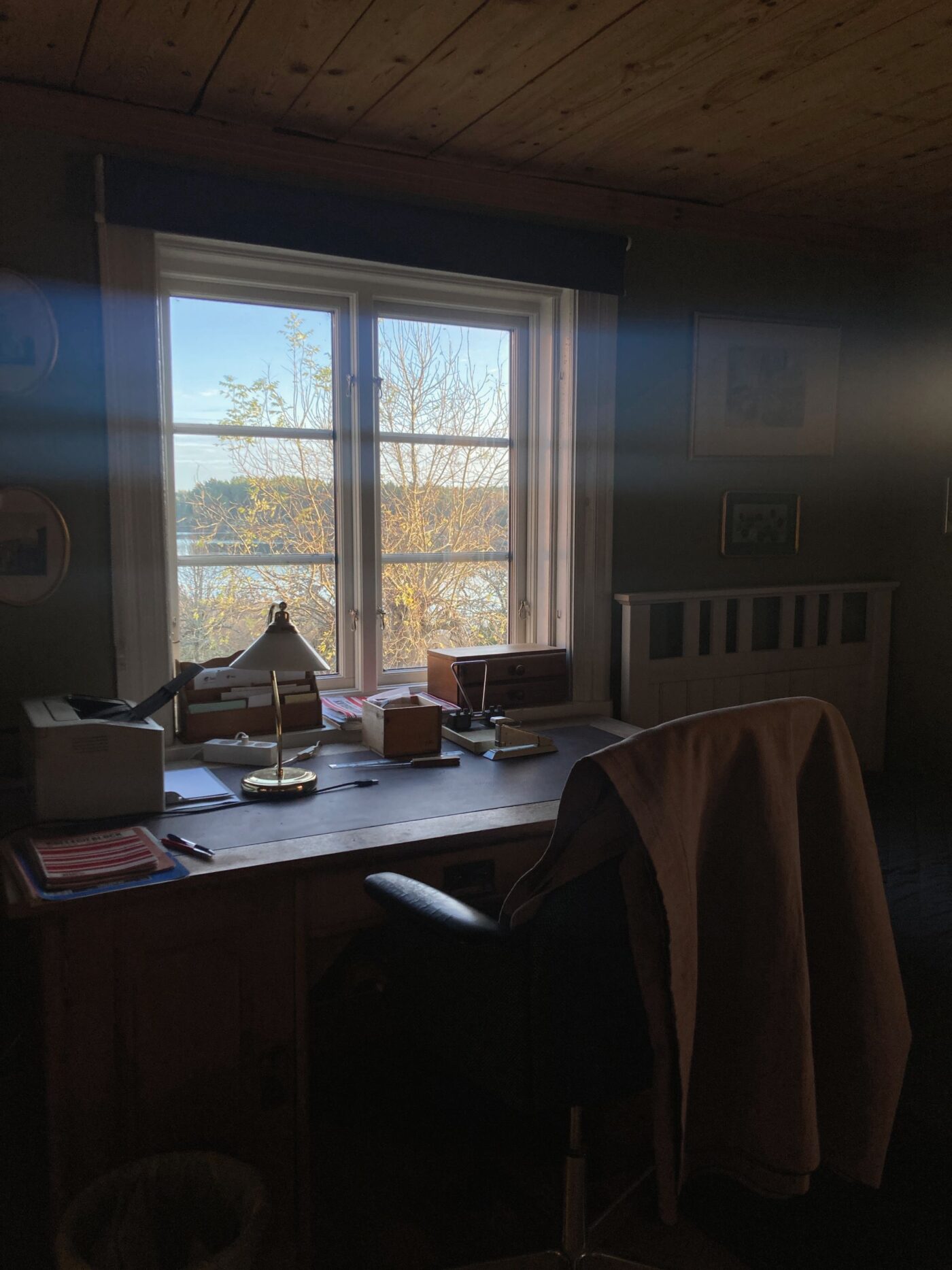
The ability to think of different things as interchangeable abstractions, Hornborg writes in Liquidate, is unique to the human brain. And it is also unique to the past two or three millennia. That’s as little as one percent of human history.
Money has been troubling thinkers ever since it was invented. Aristotle, who lived a few hundred years after the first coinage, voiced concerns over money and the social relations it produced. Money created the compulsion for hoarding, the philosopher observed, which he deemed incompatible with living a good life. Alf Hornborg also sees money as primarily a social, rather than a scientific or natural phenomenon.
He believes money can best be described as a type of magic. Not unlike the medieval alchemists who thought they could convert iron into gold, money has the power to convert something into anything else. It converts wind into telephones, water into T-shirts. But this type of magic has very material consequences. Its fluidity and boundlessness create an unevenness in the global exchange of goods and services that is conducive to climate change, ecological degradation, and inequality.
Hornborg’s suggestion of local currencies is meant to mitigate some of these problems and cause a shift from a unicentric economy into a multicentric one with different spheres of exchange.
Hornborg recognises the significant roadblocks to realising his utopian vision. For one, a strong federal policy would be needed to implement his monetary reform. He has seen too many experiments fall apart to believe in grassroots being able to organise by themselves. Another challenge would be persuading various enterprises required to accept payments in the complementary currency to embrace the concept and see its benefits. Additionally, authorities will need compelling reasons to distribute this currency to people at no cost.
Making sure I understand his suggestion correctly, I reach for a banana in my tote bag. Alf Hornborg assumes that it is because I am hungry and offers me something to eat.
I decline. I was only reaching for it to make a point: Would the redesign of money, I ask, mean that I would no longer be able to eat bananas and drink coffee as a Danish citizen?

Explore the world of tomorrow with handpicked articles by signing up to our monthly newsletter.
sign up hereBut Alf Hornborg is not suggesting an end to general-purpose money. Danes or Swedes would not be able to use their complementary currency to buy bananas, coffee beans, or other foodstuffs that do not grow naturally in Scandinavia, but they would still have access to regular money for such purchases, he explains. His proposal, ultimately, is a vision for how we might maintain the positives from globalisation while avoiding its negative consequences.
“I’m not saying: from this point on, localise everything. It would be a gradual change. I also do not mean that we should abandon the advantages of globalisation, including the free global flow of information,” Alf Hornborg underlines. “But the exchange of matter and energy should be much more relocalised. Because the major problem of globalisation today is that we are trading matter and energy from one side of the planet to the other, often unnecessarily.”
We are still inside, but we’ve kept our coats on. The house has been closed off for the winter. The potted plants have been moved away from the window frame and onto the green oil cloth-covered table we sit at. Behind us is an old-fashioned stove which comes in handy when there are power outages.
Hornborg’s thinking draws on an eclectic mix of disciplines, combining Marxist economics with thermodynamics to argue that economic processes have physical aspects. He insists that productivity ultimately stems from the primal forces of crops, soil, and sunlight – elements he believes are too often overlooked in economics.
His unorthodox combination of disparate fields of knowledge produces novel insights. Where economists might see economic growth, Alf Hornborg sees an accelerating process of dissipating energy. Entropy does not only apply to biomass, he argues, but also to what he has coined ‘technomass’ – the technological infrastructures that feed on order, materials, and energy and produce entropy through its metabolism.
Following this logic, greenhouse gas emissions represent entropy produced by the combustion of fossil fuels. General-purpose money, says Hornborg, causes all kinds of entropy. The more apple cores that are exchanged for fresh apples, as he describes unequal global exchange, the more disorder and inequality are produced.
Alf Hornborg never studied economics. And he has kept its language away from his theoretical vocabulary.
“This may be a disadvantage. It may also be an advantage. Because if I had studied mainstream economics, I believe I would have been thinking differently. I would not have been able to get a detached view of money,” he reflects.
“The way neoclassical economists think about life is contagious,” Alf Hornborg says. “They use concepts such as ‘utility’ and ‘efficiency,’ which obscure impoverishment and waste.”
What does he think these economists would say about his vision for the future of money, I ask?
“I think they would say the same things as many Marxists do if I start challenging them: ‘You don’t know what you are talking about,’” Alf Hornborg says with a sigh.
It’s a common response to anyone proposing fundamentally new ideas: that they’re simply too ignorant to grasp the concepts they’re challenging. Yet, Hornborg’s unorthodox perspective may be precisely what allows him to question the unquestioned.
Hornborg believes his proposed redesign of money would not only have ecological consequences but also social ones.
“When I moved to Yxnevik fifty years ago, most of the people here were quite old, but we had so much in common,” Alf Hornborg says. “We had parties, we took care of the roads, and we went on moose hunts together. We knew each other well and we always gossiped.”
“And now,” he continues, “I would argue there is much less of it because everybody has their own individualised sphere of interaction. If we had a functioning local economy, then we would be immersed in a social context in which we were dependent on each other and could cooperate much more.”
We have left the house and are taking a walk around the property. The moose hunting, Alf Hornborg reveals, only lasted for a short while. He realised that he did not actually want the animals to appear, because then he would have to shoot them.
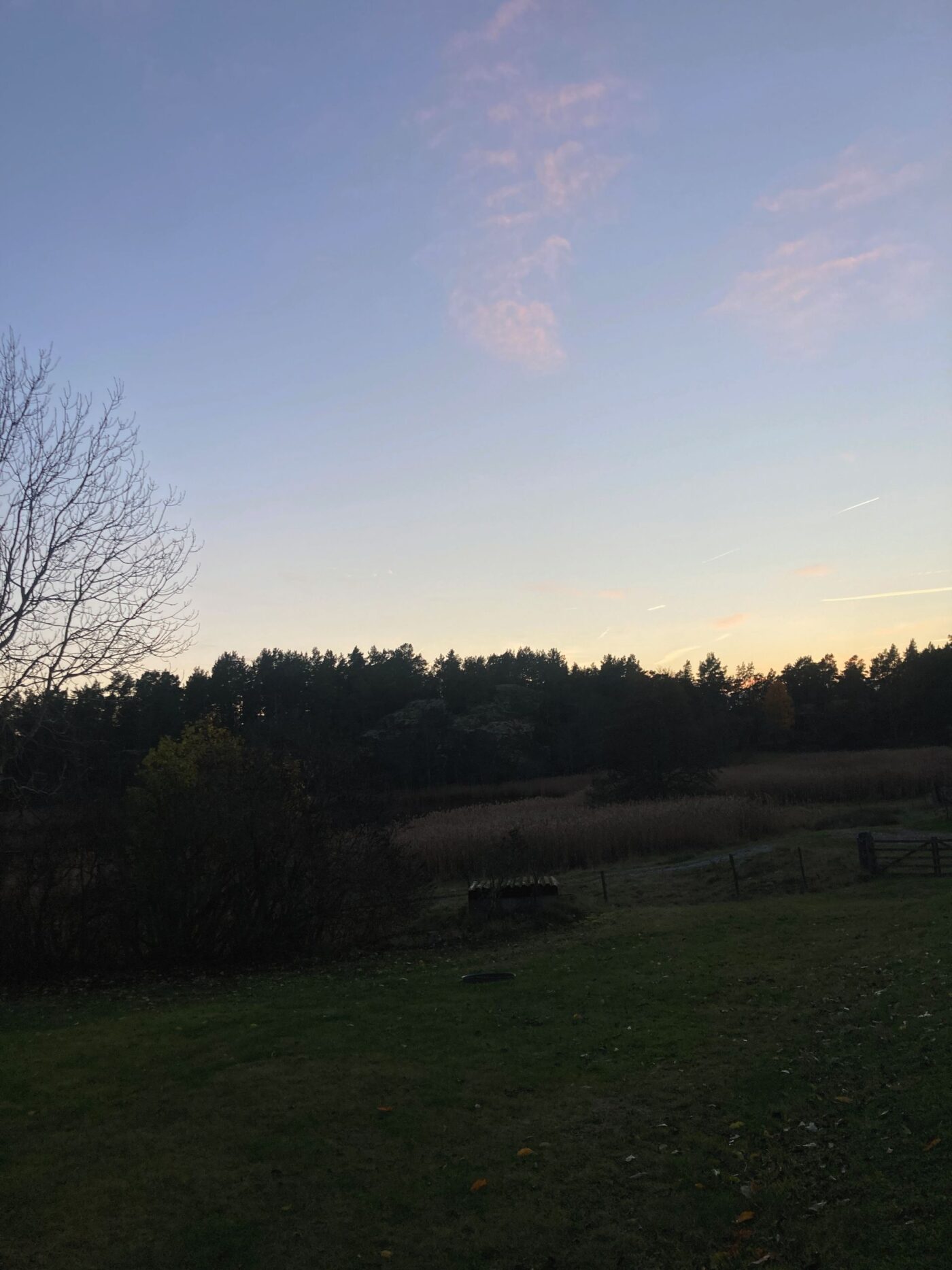
“My hope,” Hornborg says, “is for my great-grandchildren, for humankind, to live in a society where money helps people to establish sustainable relations. Not only among themselves, but to their local landscapes as well.”
You’re trying to challenge an idea that’s as old as Aristotle, I tell Alf Hornborg. How do you expect the concept of money to change so drastically?
“I agree that it is a question without an end. I’m just beginning to explore some possibilities, and, of course, many others are developing ideas along these lines.”
“I mean, people are writing books arguing that two generations from now the world will be uninhabitable. So, if our problems really are that serious, we must get to the bottom of them. And for me that means questioning the notion of general purpose money. If we continue to think in these terms, we will simply not be along-lived species. The key to how we got here is money. And the key to how we might survive is money.”
When trying to understand Hornborg’s vision for the future of money, it might be useful to look back in time. Of all the pre-modern civilizations we know of, the Inca is the only one that didn’t use money. It reminds us that the organisation of society by means of money was never the only possible option.
Night falls as we climb back into Alf Hornborg’s Volvo and leave Yxnevik behind. The headlamps light up the birch trees alongside the road. In the future, he hopes, we may not think of these or any other trees as resources with a price tag, to be harvested and liquidated, but as elements of a shared landscape, valued for the life and continuity they represent.
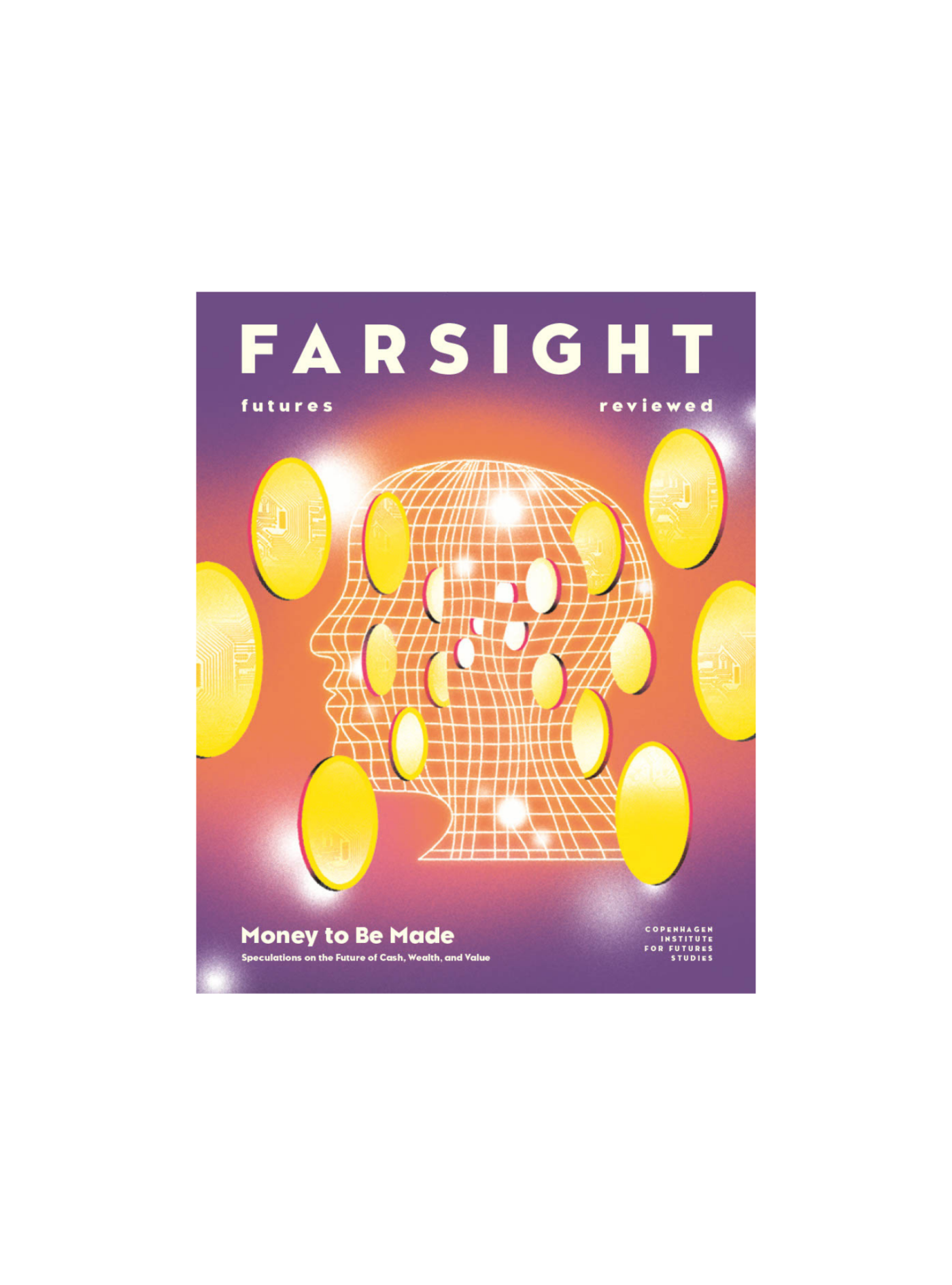
Get FARSIGHT in print.